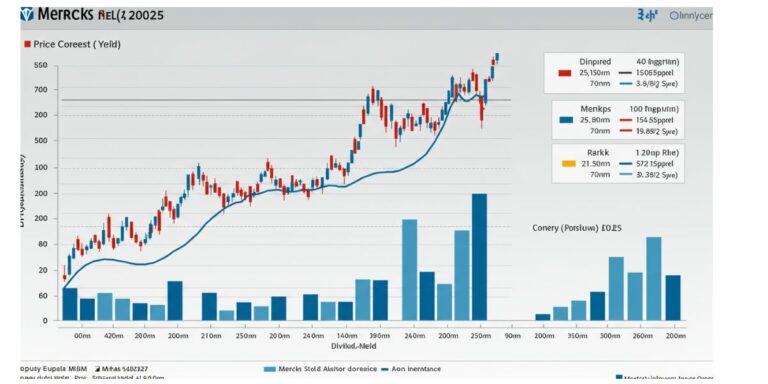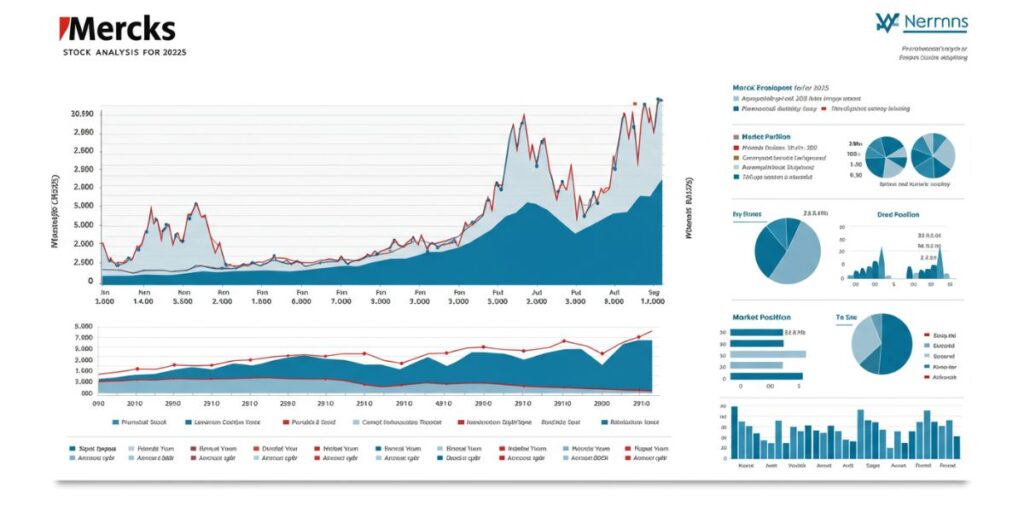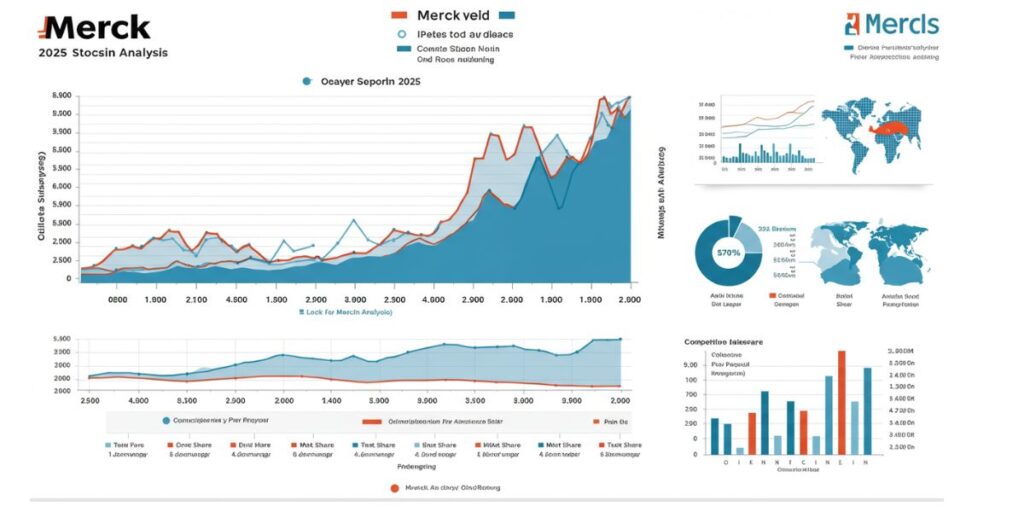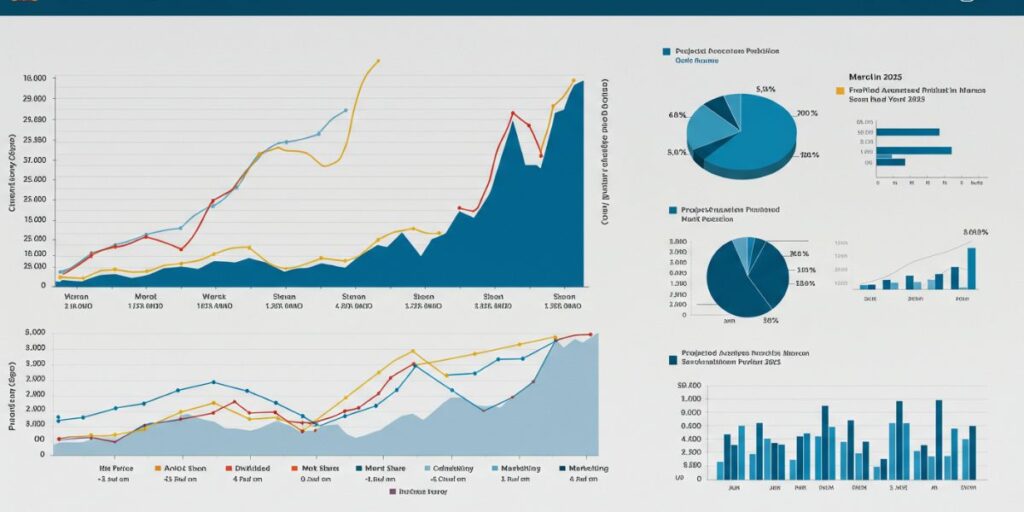
Why Merck Stock Is Drawing Attention in 2025
Merck has always been a steady player in the pharmaceutical game, but 2025? This year, it’s turning heads for all the right reasons—and some eyebrow-raising ones too.
Whether you’re the kind of investor who checks charts with your morning coffee or someone who just caught wind of Merck in a Reddit thread, chances are you’ve asked yourself: Should I be looking closer at this stock? Well, that’s exactly what we’re doing here—breaking down everything from its price history to dividend potential, and even some behind-the-scenes risks that might not make the headlines.

Quick Refresher: What Merck’s All About
Merck & Co. (NYSE: MRK), headquartered in New Jersey, is a global healthcare giant. It’s not just about pills and patents—it’s about powerful treatments that touch millions of lives. From vaccines to oncology blockbusters, Merck has its fingers in almost every corner of the pharmaceutical world.
Some major focus areas include:
- Oncology (yep, Keytruda is still the crown jewel)
- Infectious diseases
- Vaccines (especially after the pandemic shift)
- Cardio-metabolic and immunology
And let’s not forget—Merck doesn’t only develop drugs. It manufactures, markets, and handles global distribution like a well-oiled machine.
What’s New in 2025? Some Market Buzz
Here’s the thing: Merck’s been making headlines lately, and not just in trade journals.
Recent catalysts include:
- Keytruda’s expanded FDA approvals, including earlier-stage cancers
- Strong Q1 earnings beat, surprising even seasoned analysts
- A promising new Alzheimer’s treatment in late-stage trials
- News of international expansion, particularly in the Asia-Pacific region
Add that to a generally defensive pharma sector that’s appealing during economic uncertainty, and you’ve got a recipe for investor interest.
Merck Stock Price History: What’s the Track Record?
Let’s take a step back and see how Merck has been performing on the big stage.
Key Historical Trends
- Over the past five years, Merck’s stock has climbed steadily, with occasional dips tied to litigation concerns or patent loss fears.
- From 2020 to 2024, MRK went from the low $70s to flirting with $125 by late 2024.
- And now, in mid-2025, it’s holding strong in the $120–$130 range, depending on the day.
Not flashy like a tech IPO, but Merck isn’t trying to be Tesla. It’s the guy in the background consistently showing up, outperforming in tough times, and casually dropping dividends like clockwork.
S&P 500 and Peer Comparison
Compared to the S&P 500, Merck has had a less volatile but more consistent ride. While growth tech stocks had their rollercoaster moments, Merck stayed relatively smooth. Compared to its pharma peers—think Pfizer, Bristol Myers, or GSK—Merck’s stock has delivered stronger returns with less drama.
Merck Stock Forecast 2025–2030: Crystal Ball or Educated Guess?
Okay, let’s get to what most investors care about—where is Merck going from here?
Short-Term (2025–2026)
Most analysts are cautiously optimistic. The average target price sits around $135–$140, with bullish forecasts touching $150 if clinical trials pan out and markets stay calm.
But there’s always the “what if” cloud:
- What if R&D hits delays?
- What if litigation resurfaces?
- What if competitors swoop in with cheaper alternatives?
Long-Term (2027–2030)
This is where things get spicy. If Merck’s Alzheimer’s drug sees FDA approval and global adoption? The stock could see a 20–30% lift over five years, potentially pushing MRK past $175.
But there’s a bear case too—especially if Keytruda starts losing market share to biosimilars or newer treatments. That could slow growth, possibly capping it under $150 by 2030.
Analyst Ratings
- Buy: 65%
- Hold: 30%
- Sell: 5%
In plain English: Most analysts like it, but they’re not betting the house on explosive gains. It’s more about steady value and defensive positioning.

Merck Dividend Yield & Payout Ratio: Is It a Reliable Income Stock?
You know what? Income investors love Merck—and for good reason.
Current Yield
As of May 2025, Merck’s dividend yield is hovering around 2.8%, which is solid for a large-cap pharma stock.
Dividend Growth History
Merck has raised its dividend for 12 years in a row. Not flashy increases, but consistent and dependable—kind of like that friend who’s always early.
Payout Sustainability
Merck’s payout ratio is around 45–50%, which means there’s room to grow. Earnings more than cover the dividend, and the company’s cash flow is robust thanks to its diverse product lineup.
So yeah—if you’re looking for passive income with low drama, Merck delivers.
The Drug Pipeline: Merck’s Real MVP
Let’s talk about what fuels Merck—its pipeline. Stocks don’t move just on earnings. It’s the promise of future products that gets Wall Street excited.
The Big Dog: Keytruda
This cancer immunotherapy continues to rake in billions. It’s approved in multiple indications, and ongoing trials could extend its use even further. Honestly, it’s the LeBron James of Merck’s lineup—still elite after all these years.
Upcoming FDA Approvals
- MK-1942: Potential Alzheimer’s treatment. If approved? Game-changer.
- V116 pneumococcal vaccine: Especially important in aging populations.
- Oral antiviral for seasonal flu: In late-stage development.
R&D Strategy
Merck is pouring billions into oncology, neurology, and infectious disease. And instead of trying to develop everything in-house, they’re partnering up—think biotech acquisitions and joint ventures. It’s strategic and, frankly, smart.
Valuation Check: Is Merck Overpriced?
Let’s not just look at the stock price—valuation metrics matter.
P/E and PEG Ratios
- P/E (TTM): ~15.8
- PEG: ~1.6
That suggests Merck is fairly valued, maybe even slightly undervalued given its earnings potential and defensive sector.
Comparison with Industry
Most big pharma peers sit around a 17–20 P/E, so Merck looks attractive from a relative standpoint. And given its pipeline and low volatility, you’re arguably getting more bang for your buck.
Watch Your Step: Risks Around Merck Stock

Before you get too excited, let’s talk risk—because even the most promising stock comes with baggage.
Patent Cliffs
Keytruda’s patent expires in 2028. That gives competitors an opening. Unless Merck can successfully extend its exclusivity or replace revenues, that’s a ticking clock.
Regulatory or Legal Trouble
Pharma is a magnet for litigation—pricing lawsuits, marketing practices, and intellectual property battles. One ugly headline can hit the stock hard, even if it’s just optics.
Fierce Competition
You’ve got Pfizer, Roche, AstraZeneca, and a whole parade of biotech startups—all fighting for a slice of the same pie. Merck has to stay sharp and innovative.
So… Buy, Hold, or Sell?
Let’s keep it simple.
- If you’re a growth investor looking for wild returns in 12 months, Merck might feel too slow.
- But if you’re a long-term investor who values income, stability, and solid pipeline potential, it’s a strong buy or hold.
- And if you’re already in deep and worried about Keytruda’s patent expiry? Maybe hold, watch Q2 and Q3 results closely, and re-evaluate in early 2026.
Conclusion
Honestly? Merck isn’t a heart-thumping, high-volatility play. But it’s exactly the kind of stock that holds your portfolio together when markets wobble. It’s like a reliable SUV—not sexy, but always gets you home.
Between its dividend, R&D pipeline, and global reach, Merck offers something that many stocks can’t: quiet confidence. And sometimes, especially when everything else feels noisy, that’s exactly what your portfolio needs.
So, whether you’re building your first stock portfolio or just looking for a rock-solid healthcare name, Merck deserves more than a passing glance.